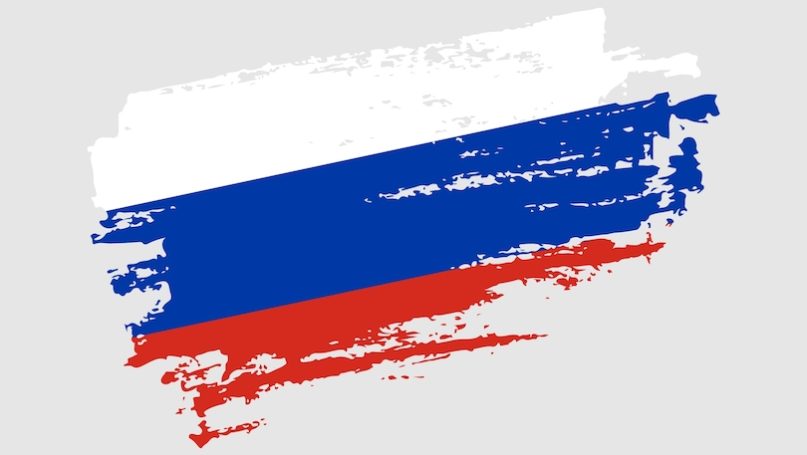
Postcolonial scholarship has challenged the West’s ambition to set the world standards of rational, global, and universal. Following several post-Soviet decades, Russian IR is also coming to the realization that the universal is in the eyes of the beholder and that the awareness of the national in social studies is a prerequisite to their successful development. As Vladimir Solovyev, a towering figure in Russian religious philosophy, put it, (whether or not we are aware of it) we “inevitably leave our national imprint on everything that we do.” All efforts to conduct research and construct theories are, therefore, principally rooted in a distinctive cultural experience.
Historically, Russians have debated the question of national distinctiveness while being well-aware of their cross-cultural and cross-geographic position in the world. Russian theories have reflected the nation’s geographic position between Europe and Asia, the complex structure of internal social, ethnic, and religious groups, as well as the status of “semi-periphery” between the Western center and the non-Western periphery in the global economy. This cross-border position has been the greatest source of Russia’s intellectual richness. There is no single theoretical cannon in Russian IR. For instance, some Russian theorists have borrowed from Europeans and have sought to teach Asians the benefits of Western values. Other Russians have been eager to produce theories that aim to stress the nation’s distinct social, geographic, and spiritual conditions.
In my forthcoming book on the “Russian Idea” in international relations, I discuss three schools/theories of Russian civilizational thinking about international relations. Russian writers and philosophers have relied on the notion of the “Russian Idea” to capture a nationally distinctive way of thinking. Philosophers Vladimir Solovyev and Nikolai Berdyayev employed the expression following the Russian writer Fyodor Dostoyevsky, who was the first to coin the term in 1860. The purpose of my book is to identify different theories of Russia’s distinctiveness. In particular, I have studied the three theories or theoretical traditions since the 19th century – Slavophiles, Communists, and Eurasianists – each focusing on Russia’s special spiritual, social, and geographic roots.
Each of these theories argued the distinctiveness of Russia as a civilization or a system of values with national and global appeal. Slavophiles stressed Russia’s spiritual/Christian foundations associated with Orthodox Christianity and the commune-based free peasant labor. While convinced of their values’ superiority over Western ones, Slavophiles diverged concerning preferred relations with European nations. Some of them believed in reviving Christian ideas jointly with Europe, while others were motivated by their alienation from the West. Communists focused on the country’s distinctive egalitarian economic and social institutions and had various ideas of relating to the “capitalist” West – from expansionism to limited engagement. Finally, Eurasianists stressed the distinctiveness of Russia’s spatial conditions in forming national values. Eurasianism is best known for its exceptionalist orientation, although some Eurasianist theories demonstrate globally dialogical approaches.
Each tradition, therefore, is internally divided between those claiming Russia’s exceptionalism, potentially resulting in regional autarchy or imperial expansion, and those advocating the Russian Idea as global in its appeal. Those favoring the latter perspective have stressed Russia’s unique capacity for understanding different cultures and guarding the world against extremes of nationalism and hegemony. To thinkers like Vladimir Solovyev, Nikolai Berdyayev, Mikhail Gefter, and others, Russia’s uniqueness is in its ability to learn from others and bridge different cultures, regions, and social systems.
Not infrequently, the two sides of the Russian idea are at odds with each other over how to view the nation’s values and foreign environment. The war in Ukraine is a case in point. The exceptionalists view it as the West’s ultimate plot to destroy Russia as a culture and a nation-state. They insist on deploying all available resources to win a decisive victory in the war with Ukraine as the Western proxy. Alternatively, the globally minded Russian thinkers do not support the war in Ukraine. They see the roots of the conflict in post-Soviet nationalism and the West’s expansionist foreign policy and lack of consideration for Russia’s interests and security concerns. Such thinkers reject the idea of final victory and advocate dialogue and political compromise between Russia, Ukraine, and the West.
Overall, as a result of the emphasis on national distinctiveness and the painful interaction with the West after the Cold War, contemporary Russia is less interested in getting its values and interests recognized by the West than in protecting its national security interests from the perceived encroachment by Western powers. Moscow feels threatened by the Western economic and military policies, and the Kremlin hopes to develop a greater sense of security from what it sees as the West’s relentless global expansion. Increasingly, Russian authorities rely on the discourse of national exceptionalism, rather than dialogue, in their relations with the United States and the European Union.
The Russian distinctive or civilizational IR theories suggest the significance of local cultural experience in the world and the difficulty of arriving at its genuinely global understanding. Viewing this world as post-western may be a good starting point but it does not provide us with a coherent answer to the question of what the global means. In contrast to some calls to build a global IR theory, such theory may not be possible. Taking the existing civilizational/cultural diversity seriously requires recognition that the global does not exist except as a constant interaction between various local communities. The best we can do is study how different cultures/civilizations theorize the global and suggest plausible paths for their productive conversations.
Further Reading on E-International Relations
- New Book – Crisis in Russian Studies? Nationalism (Imperialism), Racism and War
- Russian Nationalism (Imperialism) and Ukrainian Nationalism
- Opinion – The Impact of the Russia-Ukraine War on European Nationalism
- Ukraine and the Russian Challenge to the European Order
- Opinion – Russian Motives in Ukraine and Western Response Options
- Russia and Its Four Wests